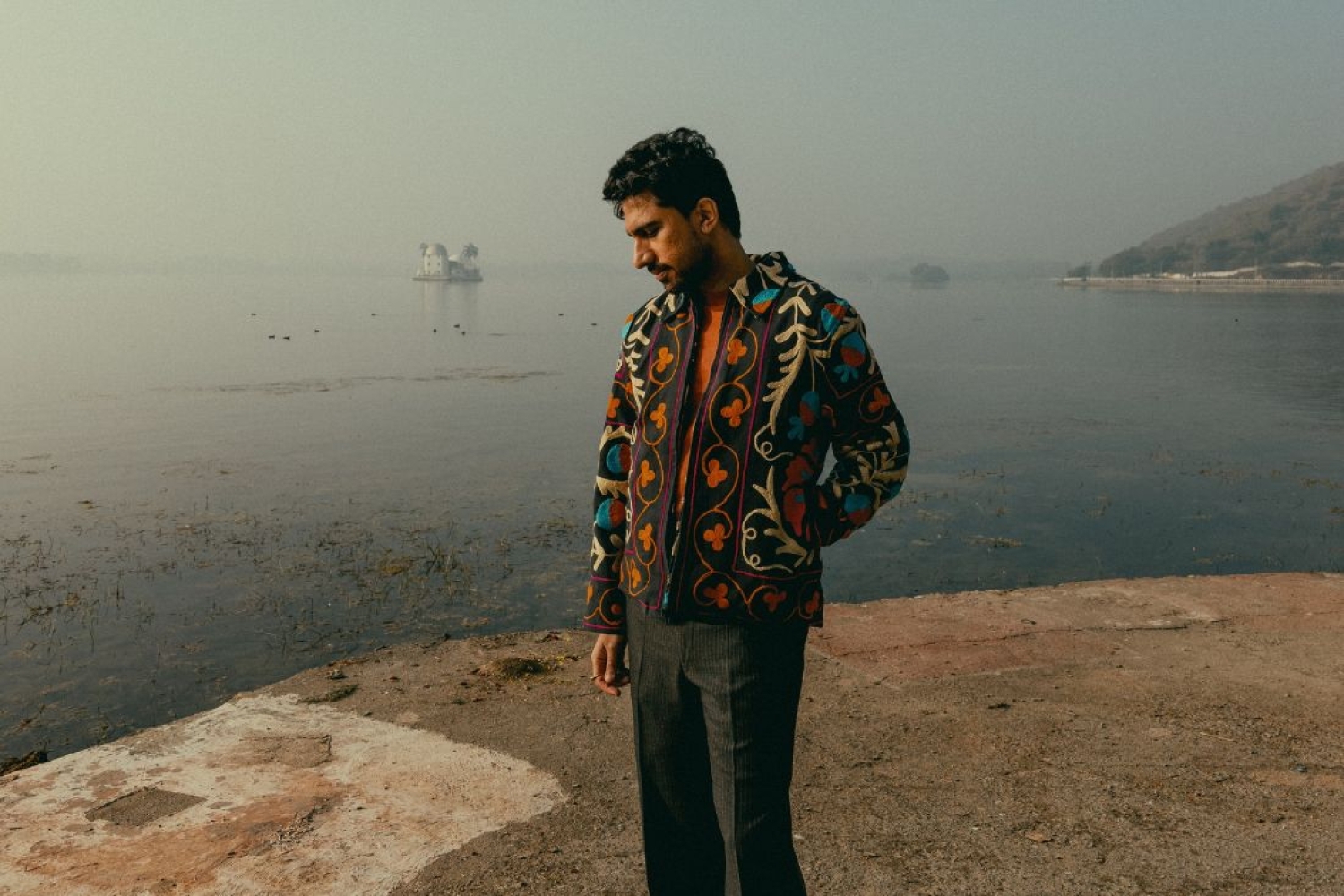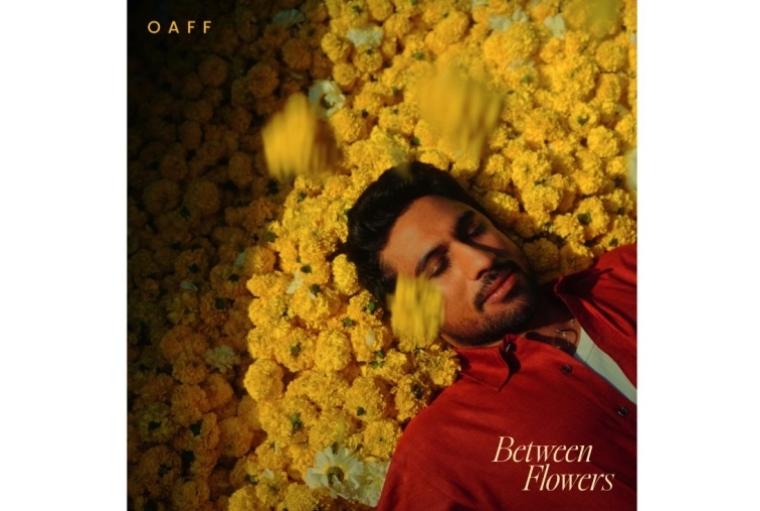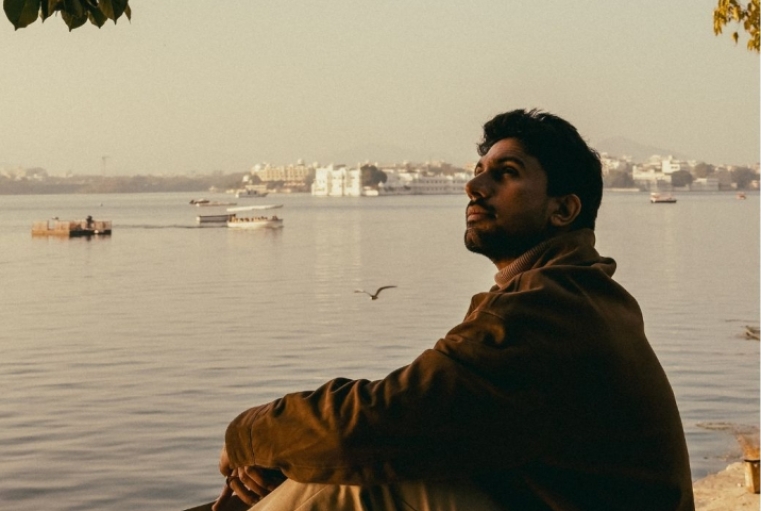

If you were unaware that OAFF is the stage name of Kabeer Kathapilia, you might also not know that he was born into the family of the celebrated architect B.V. Doshi. The passing of this beloved architect deeply affected many, and Kabeer naturally found himself feeling adrift. The loss of both his grandparents left a significant void in his life, and he also got married shortly after. These pivotal moments left him feeling unbalanced, to say the least. 'To find stability and focus amidst these major life changes, I decided to do the one thing I know best: make music,' he shared.
This debut work by the composer-producer known for the film 'Gehraiyaan' serves as a sonic exploration of emotions. Betwwen Flowers expresses vulnerability through voiceovers of his grandparents and his wife, symbolizing the fleeting nature of life’s experiences. Musically, it combines traditional elements with the lush electronica that OAFF is renowned for.
What emotions did you experience when you chose to work on this album?
I experienced a very intense year last year when I lost two grandparents within a short period of time. Shortly after, I got married. To find stability and focus amidst these significant events in my life, I decided to do the one thing I know best: make music. This was the beginning of my work on an album, which I titled Between Flowers. I chose this name because both losing someone close to me and getting married involved flowers. It felt appropriate, as it encapsulated that particular time in my life.
You have beautifully blended traditional music with lush electronic sounds on the album. What inspired you to make that decision?
When I began thinking about creating an album, I immediately recalled the music I listened to during my childhood, particularly the summer vacations I spent at my grandparents' home. I remember how much beautiful Indian classical music was played there. I was exposed to a wide range of styles, from traditional Hindustani forms like Dhrupad to fascinating collaborations between Eastern and Western musicians, such as Ravi Shankar and Philip Glass. These were the sounds that shaped my upbringing. Since the album is closely tied to my childhood, my grandparents, and my wife, I wanted to create something that bridges my past with my present. I aimed to connect the music I grew up listening to with the electronica I am currently creating. This idea of blending those two worlds is how I approached my work on the album.

There is a profound sense of vulnerability expressed in the songs, which many people can relate to. Was it easy for you to allow yourself to be so honest, open, and generous with your feelings?
I created this album mainly as a way to process my feelings. It was essential for me to be honest in my expression as I was trying to navigate and understand my experiences. At that time, I wasn't particularly focused on the audience; instead, I was concerned about whether I was truly representing what I was feeling and gaining insights into my experiences. It felt almost like therapy in a way. So, I ended up being very open and vulnerable in my work. I’m pleased that others have connected with it. I believe that authentic music or art has a way of finding its audience.
Albums typically have a beginning, middle, and end. Did you follow that structure for Between Flowers, starting and ending with Divyam Sodhi?
The order of songs was very important as it enhanced the album itself. The sequence of the tracks allows me to communicate something deeper with the listener. I experimented with various permutations to determine what should lead into what, how to start, and how to conclude the album. Ultimately, I settled on an order that I felt effectively conveyed the story through the ebbs and flows of my experiences. The album begins with Divyam's song, followed by a voice note and a music piece called bageecha, which features a voice note from my grandmother marking a significant event in my life. Later on, there's another music piece called you are Special, which includes a voice note from my wife, commemorating our marriage. The album concludes with Divyam once again, bookending the entire collection and completing the theme of marriage. I put a lot of thought into the structure because, in this case, the whole is greater than the sum of its parts.
You collaborated many times with Savera to create and perform. How was it this time to go solo? What was the energy in the studio like?
Savera has been my longest collaborator, and we are still working together on many projects. This album was really personal for me, as it reflects my story. I felt compelled to create it because I had something to express as an artist—experiences I wanted to share. This made the process of going solo feel different. I’ve released solo tracks before, but creating a full album was a unique experience. A lot of the process involved me sitting in the studio, trying to figure out what I wanted to say and why it was important to me. I constantly asked myself if I was being honest in my expression. I wanted to ensure that I was truly communicating what I was feeling. The collaborations themselves were often quick. I would bring my musical ideas to the studio and experiment with different classical bandishes and thumri melodies to see what fit. For instance, my sessions with Divyam [Sodhi] were short, during which he helped me explore various bandishes that fit into the raga. When the song Baalmaa came together, it felt right because of its wedding connotation, which aligned well with the overall theme of the album. The music fit beautifully, and the creative process was very organic. There was an exciting energy in the room when everything started to click, and I followed my intuition throughout this journey. That’s how the entire album came together.

What kind of music do you feed yourself with to keep creating?
My taste in music is very eclectic, ranging from obscure niche electronica to Indian classical music, as well as pop, R&B, and even a bit of hip-hop. I have a diverse mix of genres that I enjoy listening to, and my preferences tend to go in cycles. There are times when I find myself drawn to pop music and thoroughly enjoying it, followed by long periods where I prefer more left-of-center electronica that I really love. Ultimately, what I listen to depends on my mood and what’s going on in my life at any given time.
As a musician, can you say your music has evolved with every milestone that marked a significant development in your life, such as the passing of your grandparents and your marriage?
This is my first full-length independent album, and the last full album I worked on was for the film Gehraiyaan. When I'm working on a film or a show, my focus is on the characters, the story, and the overall vibe that I want to communicate and evoke. In this case, I wanted to openly share while I was going through a challenging time. I was feeling a bit adrift and questioning various aspects of my life, wondering why we engage in certain pursuits. It was through this introspective process that I crafted this album.
This work feels incredibly personal to me. I’ve included voice notes from my closest family members, sharing who I am with everyone. I think when you make music that is not tied to a specific purpose, like a film or a show, you get the chance to communicate something very intimate. For me, this album is a reflection of that opportunity.
Will we ever hear you sing? If yes, what would that track sound like?
Wow, no one's ever asked me that. I have actually, I used to sing before and I've sung in a bunch of ads that people would have probably heard a few years back when I was doing a lot of advertising work. So I do sing but after becoming more focused on composing and producing, I realized that I really love collaborating with people and I really love hearing different voices sing on on my music and also, I'm a little shy I think to kind of put my own voice out there. So maybe I'll sing soon. Not sure what that'll sound like but I guess you will know when I do.
Words Hansika Lohani
Date 12.02.2025